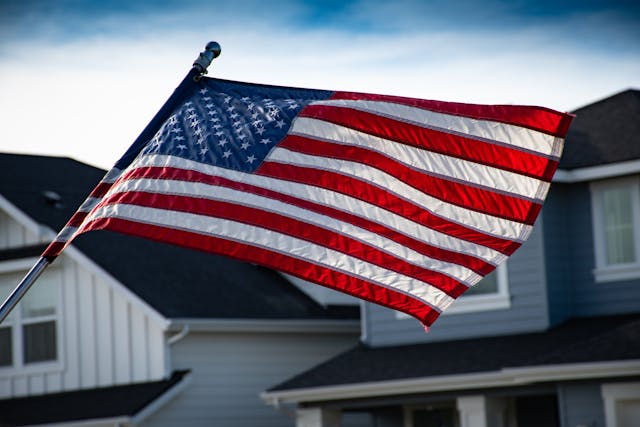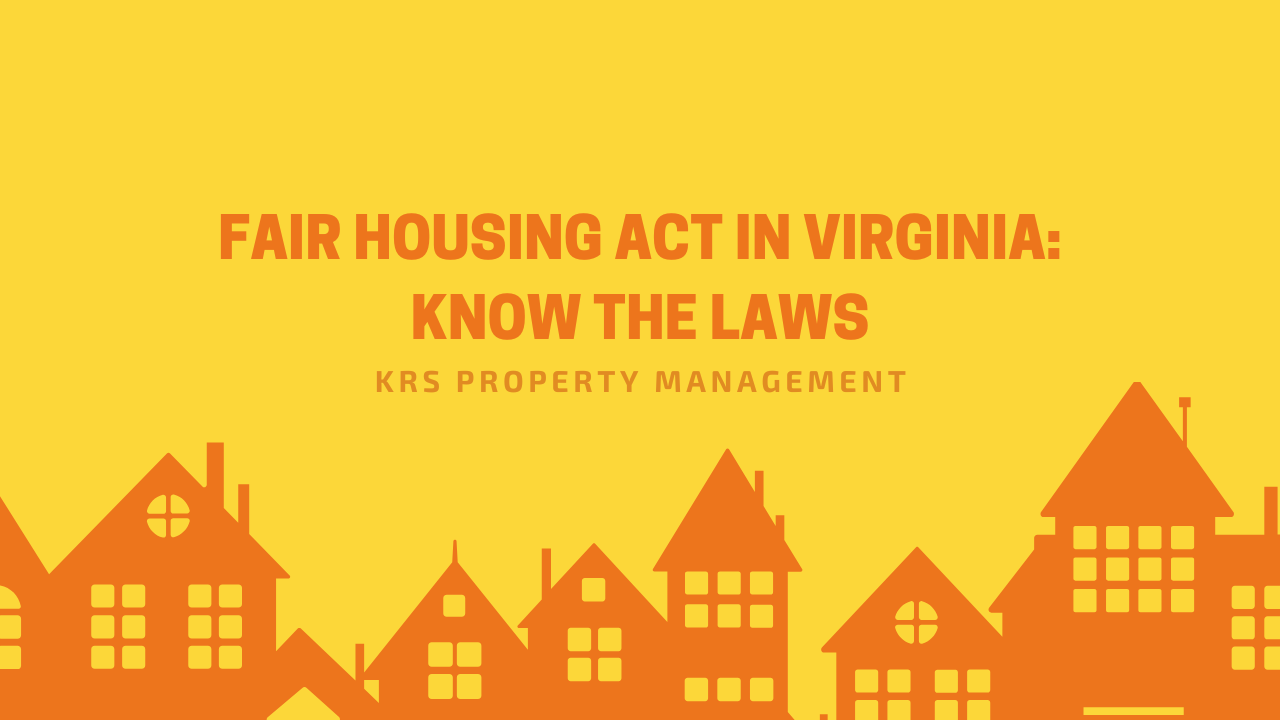Key Takeaways
- Military Status Is a Protected Class in Virginia: Unlike the federal Fair Housing Act, Virginia includes military status as a protected class. Property owners must treat active service members, veterans, and their families equally in all aspects of renting, from advertising to lease terms.
- Discrimination Can Be Subtle and Costly: Practices like tailored advertising (“ideal for young professionals”) or inconsistent screening can unintentionally violate fair housing laws. The property owner must use uniform policies and inclusive language to avoid legal risks.
- Reasonable Accommodations Are a Legal Requirement: Property owners must provide reasonable modifications and accommodations to residents with disabilities, such as allowing service animals or approving structural changes, unless doing so creates an undue burden. Prompt, fair responses help maintain compliance and community trust.
Fair Housing Act in Virginia: An Overview
Are you confident that your rental practices in Virginia fully comply with fair housing laws, or could an overlooked detail put your investment at risk?
Understanding the Fair Housing Act is essential for every property owner, especially in Virginia, where both state and federal fair housing regulations apply. Even a simple misstep in screening or advertising could lead to costly fair housing legal issues or a formal fair housing complaint. That’s why being informed isn’t just smart, it’s necessary.
Whether you're new to managing properties or expanding your portfolio, knowing your rights and responsibilities under the Fair Housing Act helps protect your assets and ensures you’re treating all prospective residents fairly.
At KRS Lynchburg, we work with investors in Lynchburg, Virginia, who want peace of mind while building long-term success. Contact us today to learn more about our property management services.
Understanding Virginia’s Fair Housing Essentials
To help property owners in Virginia navigate fair housing, it’s important to focus on key elements like protected classes, including military status, prohibited practices, advertising rules, reasonable accommodations, and compliance strategies tailored to the federal Fair Housing Act.
1. Key Protected Classes in Virginia Housing
The Fair Housing Act protects specific groups from discrimination when renting out properties. The federal fair housing act covers race, color, religion, national origin, sex, familial status, and disability. Virginia fair housing laws add military status as a protected class.

This means property owners in Lynchburg and across the state cannot refuse housing or treat residents differently based on their military background. Disregarding this can lead to an alleged discriminatory housing practice investigation or a fair housing complaint filed with the Virginia Fair Housing Office.
2. Military Status: A Unique Virginia Protection
This state stands out by including military status as a protected class under its fair housing laws. This means property owners cannot discriminate against active service members, veterans, or their families when renting properties.
Whether you’re screening applicants or setting rental terms, it’s important to treat residents with military ties in compliance with fair housing standards.
This not only protects your investment by ensuring your rental practices are legal, but also reinforces community values, especially in areas like Lynchburg with strong military roots. The Virginia Fair Housing Office enforces this protection vigorously.
3. Housing Practices Landlords Must Avoid
In Virginia, landlords must avoid actions that result in housing discrimination, even if unintentional. This includes refusing to rent, applying different conditions, or using biased advertising that implies preference for or against people based on their race, color, religion, national origin, sex, familial status, and disability.
Any of these could be seen as an alleged discriminatory housing practice under the law. For example, listing a property as "best for singles" may violate fair housing law guidelines. Such practices may prompt investigations by the Virginia Fair Housing Office.
Understanding what not to do is as crucial as knowing your rights. Avoiding residential housing discrimination allegations ensures compliance with Virginia fair housing laws and supports your reputation as an inclusive landlord.
Get A Free Rental Analysis Today!
4. Smart Advertising Rules for Virginia Landlords
When advertising rental properties, landlords must be especially cautious. Language in ads must be free from discrimination or even the appearance of bias so ensure it adheres to Virginia fair housing laws.

Avoid statements that suggest a preference based on race, age, or military status. Ads like “perfect for young professionals” or “not suitable for veterans” can trigger fair housing complaints or be seen as alleged discriminatory housing practices.
Using inclusive language ensures you’re aligned with both federal and Virginia fair housing law, and shows your commitment to fair housing in the Lynchburg market.
5. Reasonable Accommodations for Residents with Disabilities
In Virginia, providing reasonable modifications and accommodations is not optional, it’s the law. Denying modifications like installing ramps or rejecting service animals can lead to claims of housing discrimination.
To stay compliant with Virginia fair housing laws, landlords and other housing providers must be ready to respond promptly and reasonably. This approach not only helps you avoid trouble with the Virginia Fair Housing Office, but also promotes a welcoming environment.
Failing to provide reasonable accommodations could be viewed as an alleged residential housing discrimination under the Virginia fair housing laws, exposing you to legal risk.
6. Fair and Clear Resident Screening
Applying screening criteria fairly is a cornerstone of Virginia fair housing law compliance. All applicants must be treated equally, with consistent application of background, credit, and income checks.

Avoid questions related to protected classes, including military status or disabilities. Not doing so may result in a housing discrimination claim and possible intervention by the Virginia Fair Housing Office.
Following fair housing-compliant screening processes keeps your business safe and fosters a more diverse and respectful tenant community.
7. Virginia’s Fair Housing Enforcement
Avoid questions related to protected classes, including military status or disabilities. Not doing so may result in a housing discrimination claim and possible intervention by the Virginia Fair Housing Office.
Violations can result in substantial penalties, bad press, and loss of rental income. Education and consistent compliance with Virginia fair housing laws are essential to protect your investment and reputation.
By proactively preventing housing discrimination, landlords and other housing providers foster positive tenant relationships and long-term success in the rental market and avoid issues with the Virginia Fair Housing Office.
8. Staying Compliant: Tips for Virginia Landlords
Staying up to date with Virginia fair housing law and landlord-tenant statutes is the best way to remain compliant. Review policies regularly to ensure they reflect current legal standards, especially concerning protected classes like military status.
Document your policies, apply them consistently, and train staff or property managers on fair housing laws. A thoughtful approach minimizes risk and enhances your standing as a responsible landlord in the Lynchburg community.
Bottom Line: Protect Your Investment with Expert Guidance
Navigating Virginia fair housing laws can be complex, but you don’t have to do it alone. KRS Lynchburg understands the challenges landlords face and offers support tailored to your needs.
They help ensure you're not at risk of violating the Fair Housing Act, Virginia fair housing law, or being accused of an alleged discriminatory housing practice. From policy reviews to day-to-day management, we help you meet fair housing obligations and avoid housing discrimination pitfalls.
Reach out to KRS Lynchburg today and take the first step toward building a compliant, inclusive, and successful rental business in Virginia.
Please note that the information provided in this blog is intended for general guidance and should not be considered a substitute for professional legal advice. Laws change over time and may affect your responsibilities as a landlord.







